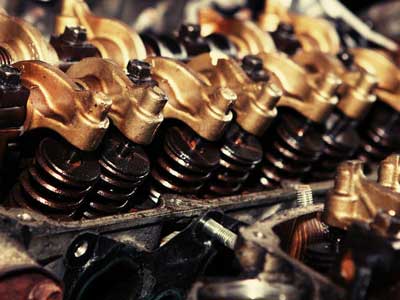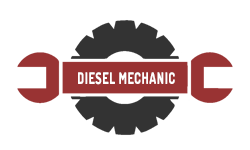Diesel Mechanic Certification
Diesel powers heavy vehicles and other machinery. It plays an important role in the functioning of different types of equipment that is essential for so many industries – from mail and cargo trucks to big generators. This makes the role of a diesel mechanic a very important one, particularly in the transportation industry. Their expertise are needed to keep vehicles running and, as a result, keep the transport operations going smoothly.

Featured Programs and Schools
What Does a Diesel Mechanic Do?
The day-to-day job duties of a diesel mechanic can include different tasks. Depending on the industry or sector they are employed in, diesel mechanics may have to take care of large trucks, buses, construction machinery, tractors, big commercial generators, or other types of heavy machinery.
Following are some of the major duties performed by diesel mechanics
- Diagnosis, repair and routine maintenance of diesel engines
- Identification and repairing of fault codes
- Carrying out performance tests
- Replacement of transmission, clutch and other parts when needed
- Overhauling and repairing of non-working engines
- Preparing service and maintenance records/reports
Select Your State
- Alabama
- Alaska
- Arizona
- Arkansas
- California
- Colorado
- Connecticut
- Delaware
- District of Columbia
- Florida
- Georgia
- Hawaii
- Idaho
- Illinois
- Indian
- Iowa
- Kansas
- Kentucky
- Louisiana
- Maine
- Maryland
- Massachusetts
- Michigan
- Minnesota
- Mississippi
- Missouri
- Montana
- Nebraska
- Nevada
- New Hampshire
- New Jersey
- New Mexico
- New York
- North Carolina
- North Dakota
- Ohio
- Oklahoma
- Oregon
- Pennsylvania
- Rhode Island
- South Carolina
- South Dakota
- Tennessee
- Texas
- Utah
- Vermont
- Virginia
- Washington
- West Virginia
- Wisconsin
- Wyoming
Types of Diesel Mechanics
A diesel mechanic or diesel service technician is expected to perform various duties involving the proper functioning of diesel engines, different diesel powered vehicles and machinery.
Diesel Mechanic Salaries and Job Growth
According to the data available with the U.S Bureau of Labor Statistics, diesel mechanics and service technicians made an annual median wage of $47,350 in May 2018. This translates to an hourly wage of $22.76.
Steps to Become a Diesel Mechanic:
To build a career as a diesel mechanic, you will need to take the following steps.
- Obtain your high school diploma or equivalent GED certificate
The minimum level of education needed to start a career as a diesel mechanic or a diesel service technician is a high school diploma or an equivalent GED (General Education Development) certificate.
There are no specific work experience requirements for entering the sector. You will be trained on the job. However, many employers are beginning to prefer candidates who have gone through post-secondary training courses in diesel engine repair and management.
- Get post-secondary training
If you are looking to obtain a higher qualification before starting a career as a diesel mechanic or a diesel service technician, you might be interested in programs on technical training, diesel engine repair and automotive training. These will help you learn specific skills and get hands-on training by working on real diesel engines and heavy machinery that you are likely to come across in the field.
There are different institutions that provide diesel mechanic training. You should ideally seek a program that is approved and certified by the National Institute for Automotive Service Excellence (ASE) and the National Automotive Technicians Education Foundation (NATEF).
- Learn on the job and gain experience
Once you have landed a position as a trainee diesel mechanic or a service technician, you will then have to learn the basics of the work on the job. As you learn more things and gain experience, you will be able to take on roles with greater responsibilities and career growth prospects. You can also specialize in particular areas and equipment types such as industrial power generators, pumps, truck and bus engines and agricultural machinery, etc.
- Obtain relevant certifications
More and more employers are beginning to prefer diesel mechanics and service technicians who have professional certifications. So, acquiring a certification can significantly improve your career growth prospects as a diesel mechanic.
Certifications
The National Institute for Automotive Service Excellence (ASE) provides different study and certification programs in school bus and transit bus maintenance, truck equipment, and heavy/medium trucks. In order to enroll for and successfully obtain an ASE certification, you will need a minimum of two years of work experience in your area of specialization.
Diesel Mechanic Career Advancement
If you are planning to start a career as a diesel mechanic or a service technician, then the growth outlook for the sector is quite encouraging. Employment opportunities for diesel service technicians and mechanics are expected to grow by 9 percent between 2016 and 2026, according to the US Bureau of Labor Statistics.
This is about as fast as the average growth rate for jobs in any other occupation. For individuals who have completed post-secondary diesel engine repair training and obtained a certification in the field, the prospects of a long and successful career in the field are quite good.
Should You Become a Diesel Mechanic?
If you are interested in working on diesel engines and are fascinated by heavy machinery, then it might be a good career choice to become a diesel mechanic or a diesel service technician. Here is why:
- Easy entry into the field
The entry requirements are not very high in the field of diesel mechanics. All you need is a high school diploma or an equivalent GED certificate and you are good to go. You can then go for specialized post-secondary training. Some certifications can also be obtained as you get more experience in the field.
- Affordability
Training and certification programs related to diesel mechanics are quite easy on the pocket and you would not have to pay through the nose for them.
- Good growth prospects
There will always be considerable demand for competent diesel mechanics and service technicians. As long as there are industries dependent on diesel engines and diesel-powered heavy machinery, the demand for diesel mechanics will be there. As per the U.S. Bureau of Labor Statistics, jobs in the sector are expected to grow by as much as 9 percent between 2016 and 2026.

